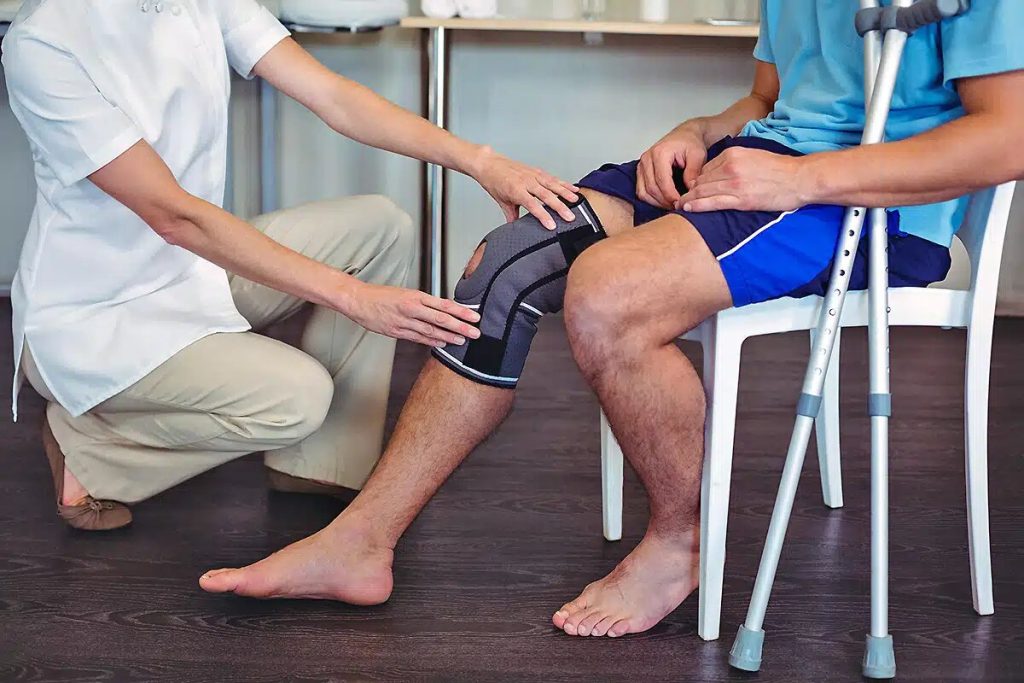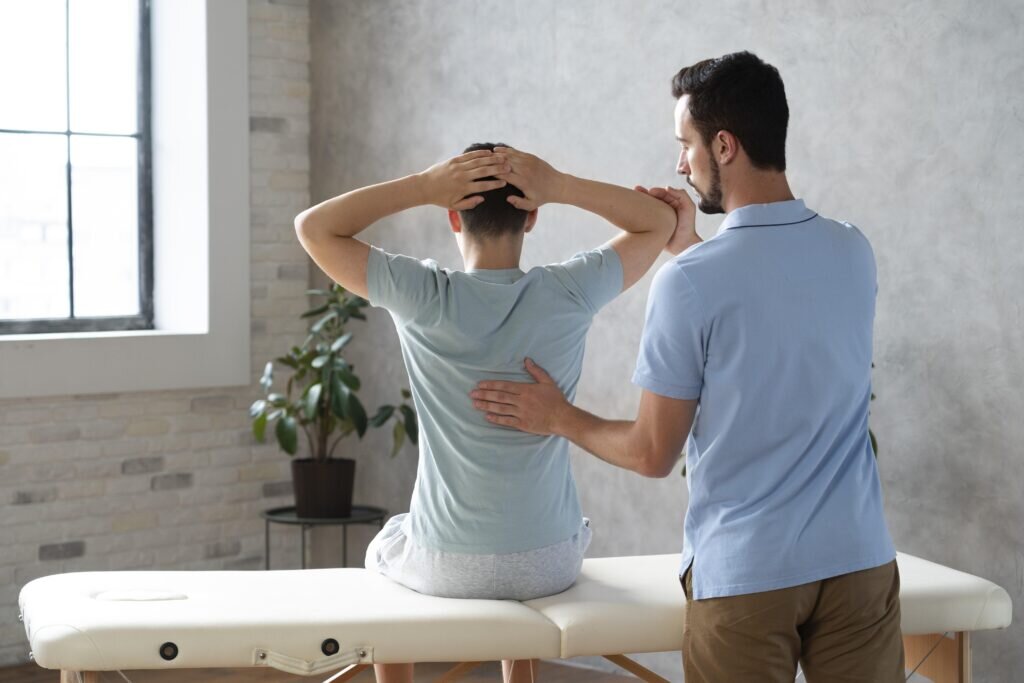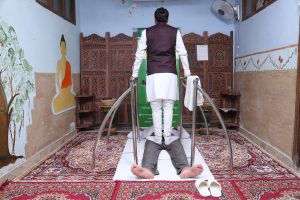Knee pain is a common complaint that affects people of all ages. Knee pain may be the result of an injury, such as a ruptured ligament or torn cartilage. Medical conditions — including arthritis, gout and infections — also can cause knee pain.
Many types of minor knee pain respond well to self-care measures. Physical therapy and knee braces also can help relieve pain. In some cases, however, your knee may require surgical repair.

Symptoms
The most common causes of knee pain are related to aging, injury or repeated stress on the knee. Common knee problems include sprained or strained ligaments, cartilage tears, tendonitis and arthritis.
- Inability to fully straighten the knee
- Popping or crunching noises
- Swelling and stiffness
- Redness and warmth to the touch
- Weakness or instability

INJURIES AND OVERUSE
- Bursitis — Inflammation from repeated pressure on the knee, such as kneeling for a long time, overuse, or injury
- Tendinitis — Inflammation of the tendon with change in activities, can be related to overuse or deconditioned tissue
- Dislocation of the kneecap
- Iliotibial band syndrome — Injury to the thick band that runs from your hip to the outside of your knee
- Torn cartilage (a meniscus tear) — Pain felt on the inside or outside of the knee joint

Diagnosis
“Relieve Knee Pain Naturally with Wellness Neurotherapy: A Gentle Approach to Healing”
Are you tired of living with chronic knee pain? Neurotherapy may hold the key to finding relief without invasive procedures or medications. This holistic approach focuses on stimulating the body’s natural healing abilities by targeting the nervous system. By gently manipulating specific points on the body, neurotherapy aims to restore balance and reduce inflammation in the knee joints. With regular sessions, many individuals have reported significant improvements in pain levels and increased mobility. Discover the power of neurotherapy and take control of your knee pain today.
- Conservative treatment such as local heat and appropriate muscle strengthening exercises may be given.
- Stretching, strengthening and postural exercise help to maintain healthy cartilage.
- Chair asana is also good, to get relief from pain.
- Always sit drink water if you drink water in standing posture there will be pain calf muscles.

Home Care
Simple causes of knee pain often clear up on their own while you take steps to manage your symptoms. If knee pain is caused by an accident or injury, you should contact your health care provider.
If your knee pain has just started and is not severe, you can:
- Rest and avoid activities that cause pain. Avoid putting weight on your knee.
- Wear an elastic bandage or elastic sleeve, which you can buy at most pharmacies. This may reduce swelling and provide support.
- Sleep with a pillow underneath or between your knees.
- Keep your knee raised as much as possible to bring down any swelling.







